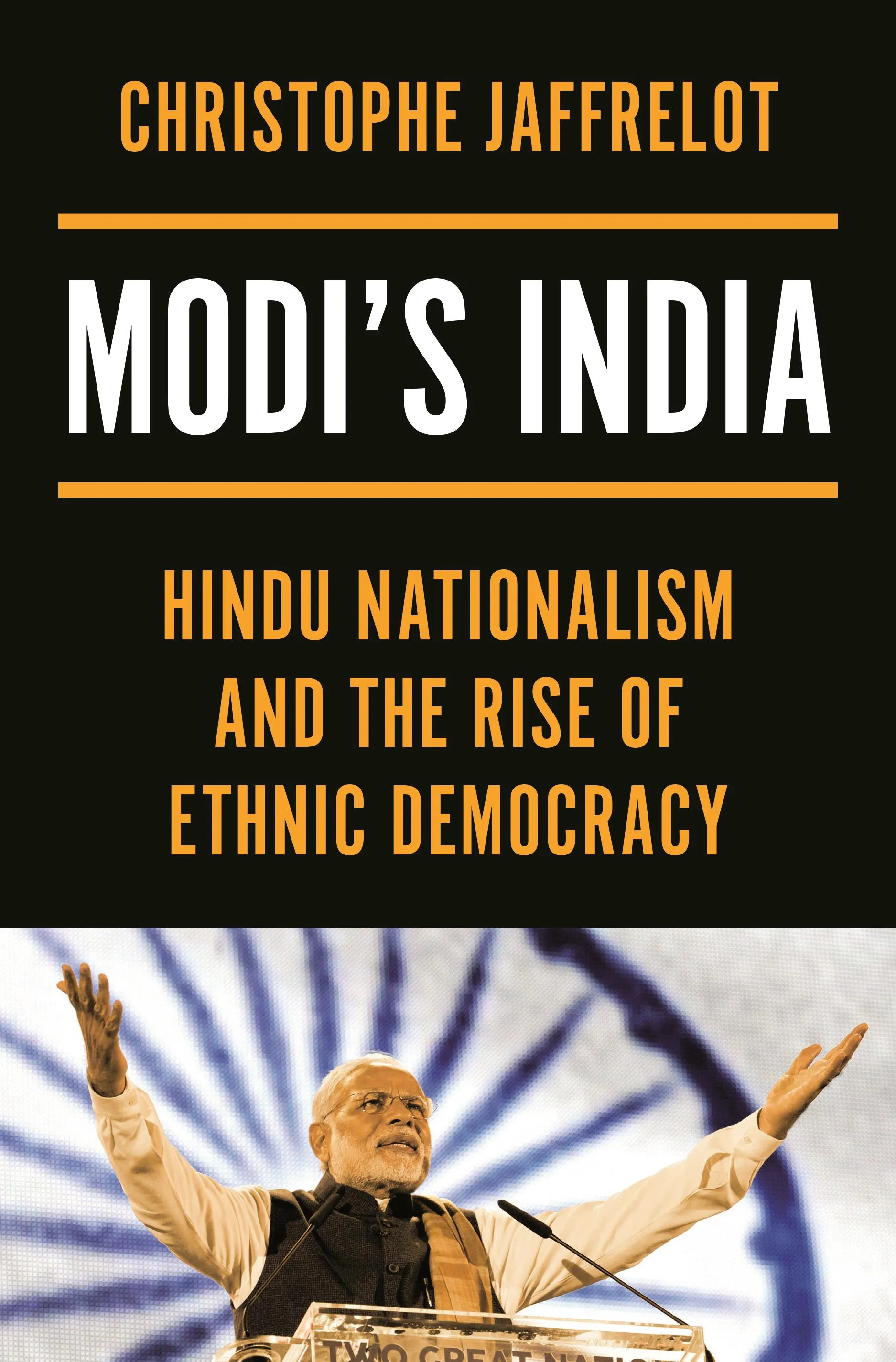Please note: this event has passed
Over the past two decades, thanks to Narendra Modi, Hindu nationalism has been coupled with a form of national-populism that has ensured its success at the polls, first in Gujarat and then in India at large. Modi managed to seduce a substantial number of citizens by promising them development and polarizing the electorate along ethno-religious lines. Both facets of this national-populism found expression in a highly personalized political style as Modi related directly to the voters through all kinds of channels of communication in order to saturate the public space.
Drawing on original interviews conducted across India, Christophe Jaffrelot shows how Modi’s government has moved India toward a new form of democracy, an ethnic democracy that equates the majoritarian community with the nation and relegates Muslims and Christians to second-class citizens who are harassed by vigilante groups. He discusses how the promotion of Hindu nationalism has resulted in attacks against secularists, intellectuals, universities, and NGOs. Jaffrelot explains how the political system of India has acquired authoritarian features for other reasons, too. Eager to govern not only in New Delhi, but also in the states, the government has centralized power at the expense of federalism and undermined institutions that were part of the checks and balances, including India’s Supreme Court.
Modi’s India is a sobering account of how a once-vibrant democracy can go wrong when a government backed by popular consent suppresses dissent while growing increasingly intolerant of ethnic and religious minorities.
About the author
Professor Christophe Jaffrelot
Christophe Jaffrelot is Avantha Chair and Professor of Indian Politics and Sociology at the King's India Institute and also the Research Lead for the Global Institutes, King’s College London. He teaches South Asian politics and history at Sciences Po, Paris and is an Overseas Fellow at the Carnegie Endowment for International Peace. He was Director of Centre d’Etudes et de Recherches Internationales (CERI) at Sciences Po, between 2000 and 2008. As CNRS Research Director, he teaches South Asian politics and history at Sciences Po, Paris and is an Overseas Fellow at the Carnegie Endowment for International Peace.
More information about the book
Chair
Dr Louise Tillin
Dr Louise Tillin is currently Director, King’s India Institute and Reader in Politics. She is also the programme director of the MSc Global Affairs. Louise’s research interests span federalism, democracy and territorial politics in India, and the history and politics of social policy design and implementation. Louise is a regular commentator on Indian politics in UK, Indian and international media. She is an editor of the journal Regional and Federal Studies, and an editorial board member of Pacific Affairs.
Discussants
Professor James Manor
James Manor is Emeka Anyaoku Professor at the Institute of Commonwealth Studies, University of London. He has studied every Lok Sabha election since 1971, and several state elections. He has also analysed India’s political parties, the difficulties faced by Chief Ministers since 1972, the role of India's Presidents, panchayati raj, civil society’s interactions with government, and India’s poverty programmes.
Dr Mukulika Banerjee
Mukulika Banerjee is an Associate Professor in Social Anthropology at London School of Economics and Political Science. She studied in Delhi and Oxford universities and taught at Oxford and UCL before joining LSE. She has conducted ethnographic research in Khyber Pakhtoonkhwa (NWFP), Pakistan between 1990-1993 and in India since 1998. She has published Why India Votes? (2014), The Pathan Unarmed (2001) and The Sari(2003) and Muslim Portraits (2007). Her new monograph entitled Cultivating Democracy: Politics and citizenship in agrarian India (OUP) based on fifteen years of research in rural India is out this month.

